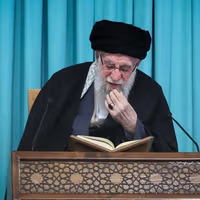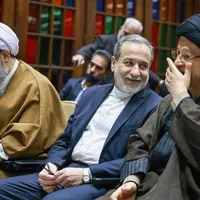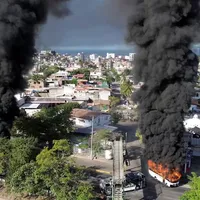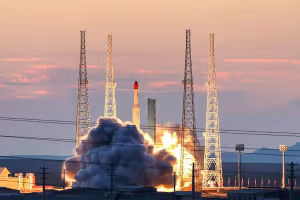The report said a Tehran-based nuclear diagnostics firm, Imen Gostar Raman Kish, advertised that several of its radiation-safety devices use Geiger-Müller radiation-detection tubes produced by Centronic Ltd, a company that supplies the UK Ministry of Defense and was acquired last year by French defense-electronics group Exosens.
According to the report, Imen Gostar is run by senior figures tied to Iran’s Organization of Defensive Innovation and Research (SPND) and the Islamic Revolutionary Guard Corps.
The United States has sanctioned SPND, describing it as the successor to Iran’s pre-2004 nuclear weapons effort, while Tehran says its nuclear program is purely peaceful.
The Financial Times said corporate filings show Imen Gostar is chaired by Mohammad Reza Zare' Zaghalchi (Zoghalchi), an SPND official sanctioned by the US Treasury in October for procurement work it said had “direct applications to nuclear-weapons development.”
It added that the company’s vice-chair is Ali Fouladvand, SPND’s head of research, who is also under US sanctions.
Some of Imen Gostar’s equipment is promoted for export in brochures issued by the Mindex Center, Iran’s defense ministry export agency, which also markets Shahed drones, Ghadir submarines, and several ballistic missiles.
Centronic told the outlet it had no record of any transaction or commercial relationship with Iranian entities.
The company said it applies strict export-control procedures, systematically evaluates customers for re-export risks, and would investigate how its components may have ended up in Iranian devices.
Financial Times said it found no evidence that Centronic or any other Western manufacturer knowingly exported items to Iran or to sanctioned Iranian military or nuclear-linked companies.
The FT said it was unclear how the UK-made parts were obtained, noting that Iranian entities have a record of using intermediaries and front companies to source Western dual-use items amid sanctions.
It said the discovery fits a wider pattern of alleged SPND-linked procurement networks in Europe and Asia and follows earlier FT reporting on covert scientific outreach to Russia for technologies US officials say could have nuclear-weapons-related applications.
An investigation by Iran International earlier this year documented a Vienna-based hub tied to SPND-linked front firms purchasing neutronics-related and other sensitive components with potential applications in nuclear weapons design.
Washington has sanctioned more than 30 SPND scientists and multiple affiliated entities, saying the organization oversees “dual-use research and development activities applicable to nuclear weapons and nuclear weapons delivery systems.”
In 2024, Iran’s parliament formally recognized SPND under Iranian law, placed it under the authority of the Supreme Leader and exempted its budget from parliamentary oversight.
















